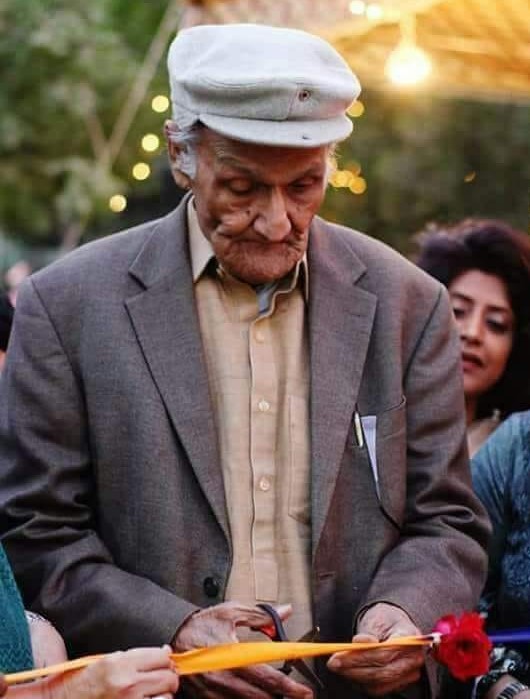KARACHI: The nationalist groups and parties in Sindh, despite their decades-long struggle against feudal system and growing appeal among the oppressive and the down-trodden, have failed to make their mark in the electoral politics.
Sindh’s nationalist leaders and their parties, comprising students and middle-class activists, have traditionally been hardliners, but they have failed to make an impact in the electoral and parliamentary politics as overwhelming numbers of voters in their province follow the mainstream, middle-of-the-road parties, especially the Pakistan Peoples’ Party (PPP).
Top nationalists who have tasted defeats in electoral and parliamentary politics decades after decades, often raise slogans against the mainstream leadership and blame the feudal system for their failure.
They are of the view that every government of Pakistan since 1947 has always supported the feudal system and have deliberately kept the nationalists out of mainstream politics.
A majority of these strong nationalist groups, including JSQM-Bashir and others, are inspired by the philosophy of nationalism enunciated by late nationalist leader, Saeen Ghulam Murtaza Syed who is popularly known as G. M. Syed.
They acknowledge late Syed as their ultimate leader-cum-guide of the ‘Jiye Sindh’ or the national independence movement, which focusses on a non-violence philosophy and adopts non-violent methods to achieve their goal.
For the past several decades the slogan of “G. M. Syed Rahbar Aa – SindhuDesh Muqqadar Aa” (G.M. Syed is our guide, supreme leader and SindhuDesh is our destiny) has become the trademark of Jiyae Sindh splinter groups in the province.
However, there are not one but two different schools of thought which are dominant among the nationalist groups, one that subscribes to the philosophy of late G.M. Syed and the other adopted by veteran nationalist leader late Rasool Bux Palijo whose son Ayaz Latif Palijo now leads the Awami Tehreek (AT).
The respective rise of the two leaders was triggered by similar circumstances. G.M. Syed contested the general elections of 1970 as MNA from Dadu-2 but lost the polls. He blamed the PPP and other quarters for orchestrating his defeat and launched his struggle against parliamentary politics.
Rasool Bux Palijo, who was a supporter of the electoral politics, contested the general elections 1988 for the first time but could not win the MNA slot from Thatta. He also blamed hidden hands for his defeat and launched a movement against parliamentary politics.
The nationalists follow a manifesto which is fundamentally based on nationalism, socialism, democracy and secularism since their politics is centric to the struggle for geo-economic, political and cultural independence of ‘Sindhu Desh’. These nationalists, of course, take their inspiration from G.M. Syed and are committed to establishing a socialist state.
That said, it is interesting to note that while all Jiyae Sindh groups, which have been formed after the death of G.M. Syed, follow his ideology and philosophy but remain disunited due to their petty differences.
There are over a dozen Jiyae Sindh groups and parties which have their respective student wings which are quite active. They include Jeay Sindh Qaumi Mahaz-Bashir (JSQM-Bashir) chairman Sanan Qureshi, Qaumi Awami Tehreek (QAT) president Ayaz Latif Palijo, Jeay Sindh Mahaz-Khaliq (JSM-K) chairman Abdul Khaliq Junejo, Sindh Taraqi Pasand Party (STP) chairman Dr Qadir Magsi, Jeay Sindh Qaumi Mahaz-Bashir (JSQM-Arisar) chairman Aslam Khairpuri, Jeay Sindh Mahaz-Riaz (JSM-R) chairman Riaz Chandio, Awami Tehreek (AT) president Dr Rasool Bux Khaskheli, Awami Jamhoori Party (AJP) founder Abrar Kazi, the proscribed Jeay Sindh Muttahida Mahaz (JSMM) chief Shafi Burfat and others.
Among these groups, the JSQM-Bashir party is fairly popular throughout Sindh. But while they have a strong enough following to make a solid impact, they have been reluctant to take part in the general elections.
The party has never fielded its candidates in any general elections since its inception as they are completely against parliamentary politics and rather subscribe to fundamental cornerstones and main objectives of the nationalist movement.
Like most nationalist groups, JSQM-Bashir also blame the imperialist and feudal forces who coerce the nationalists to keep away from mainstream and parliamentary politics. Some of the veteran nationalists, in fact, even refrain from shaking hands with the feudal lords, zamindars, capitalists and powerful mafias because they believe that they usurped the people’s rights and deprived them of the basic facilities including education, health, employment, properties and land.
The stance of these nationalist groups has taken roots among the oppressed Sindhi people including farmers, labourers, students, middle and lower middle-class as well as the progressive-minded intellectuals.
Having said that, the nationalist parties or groups lack major political clout and, therefore, fall short of acquiring their main objectives which could bring a decisive change in the provincial politics. Among the prime objectives of these groups is creation of Sindhu Desh and recognition of Sindhi language as the official language of the province. Besides that, the expulsion of people entering Sindh since 1956 is another main objective followed by exclusive rights of Sindh over its own resources and appointment of Sindhis in all the factories, organisations located in Sindh etc.
Another common trend to be observed among the nationalists is their support for those nations around the world who have fought for equal rights and their independence.
Only time will tell if the politics and beliefs of these nationalist groups in Sindh will prevail over the existing system or will they eventually succumb to it in the years to come.



















